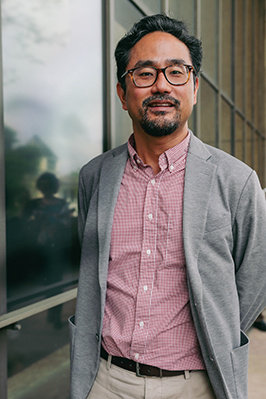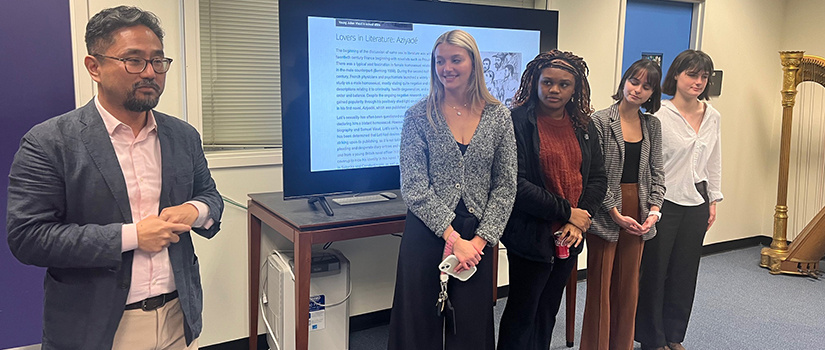 Kunio Hara, an associate professor of music history at the University of South Carolina, has
been awarded a National Endowment for the Humanities (NEH) Summer Stipend. Hara is
one of 97 scholars—and one of only two South Carolinians—to receive funds for their
humanities projects.
Kunio Hara, an associate professor of music history at the University of South Carolina, has
been awarded a National Endowment for the Humanities (NEH) Summer Stipend. Hara is
one of 97 scholars—and one of only two South Carolinians—to receive funds for their
humanities projects.
NEH awarded $26.2 million for 238 projects nationwide to stimulate new research in the humanities. These stipends support continuous full-time work on a humanities project for two consecutive months.
In a news release announcing the grants, NEH Chair Shelly C. Lowe says the purpose of the grants is to fund education, preservation, research, and public programs to expand cultural resources and foster learning in communities across the country.
“From studies of the impact of emerging technologies on humans to new documentaries that lift up under-told stories, these projects show how the humanities help us understand ourselves and our world,” says Lowe.
Hara will use his grant for research and writing, leading to a book about the reception and performance history of Giacomo Puccini’s opera Madama Butterfly (1904), focusing on the contributions made by artists of Asian backgrounds from World War II to the present.
Titled “Transpacific Refashioning of Giacomo Puccini’s Opera Madama Butterfly, 1941−2023,” Hara’s project is a book about the reception and performance history of Puccini’s famous opera about a tragic romance between a young Japanese woman (Cio-Cio-San or Madame Butterfly) and an American naval officer Lieutenant Benjamin Pinkerton that takes place in Nagasaki, Japan at the turn of the twentieth century.
According to Hara, the opera has been an audience favorite for over a century in the U.S. “Still, it has faced various political, social, and cultural pressures due to war, trade tensions, and ongoing discussions on the representation and inclusion of people of different ethnic and cultural backgrounds on the performing stage.”
Since its premiere in 1904, there has been rising concern that some companies’ productions of Madama Butterfly portray inaccurate, harmful representations of Japanese culture.
Amid heightened racism toward Asian communities during the 2020/21 COVID-19 pandemic, Madama Butterfly’s historical and socio-political impact was the subject of several discussion series featuring Asian American artists and activists, including Boston Lyric Opera’s (BLO) The Butterfly Process.
Considered a preeminent Puccini scholar by his peers, Hara was invited to the BLO’s panel to share thoughts on the socio-political context during the opera’s premiere and how it changed during and after World War II.
Hara speaks of the importance of projects like this.
Madama Butterfly has inspired a much-needed conversation about the representation and inclusion of Asian and Asian American voice in classical music in recent years.
— Musicologist Kunio Hara
“I saw the need for a performance and reception history of the opera to help empower (in small ways that I can) Asian and Asian American activists when engaging with this opera,” says Hara. “Madama Butterfly has inspired a much-needed conversation about the representation and inclusion of Asian and Asian American voice in classical music in recent years.”
A special collection of Japanese Madama Butterfly materials in the University of South Carolina School of Music’s library allows Hara to share the opera’s historical themes with his students. During the fall semester of 2023, a group of Hara’s students analyzed and researched the opera’s rich themes of gender, race, and inclusivity.
With this grant, Hara plans to travel to Japan this summer to conduct archival research and explore and write about the ways Japanese performers, directors, artists, and activists have promoted, challenged, and refashioned opera in that country following WWII.
Topics: Music History, School of Music Library
